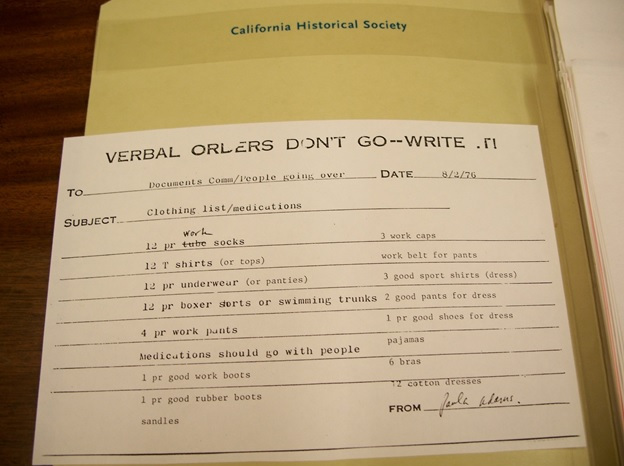Success before tragedy

To create the Peoples Temple in 1955, its founders merged religious ideology with a vision of a world that transcended race and social class. Twenty-four years later, more than 900 of the group’s members lay dead, their bodies decomposing in the Guyanese jungle heat.
The group’s written records both reflect and—importantly—shaped its tragic path, said teaching professor of writing Heather Shearer. Shearer began researching the group’s documents expecting to find evidence of “brainwashed cult members,” she said. “But I saw a really different picture.”
Ninety-six boxes of letters, pledges, and checklists—some on memo pads printed with the header “Verbal orders don’t go—write it!”—bear witness to the group’s meticulous planning and utopian achievements: a racially integrated church in 1950s Indiana, communal housing developed in Northern California, and members’ excitement as they built Jonestown. “They’re known for dying, but let’s not forget what they accomplished,” Shearer said. “It’s impressive how organized they were, and how the writing helped them organize.”
Dismissing them as a cult denies what we learn from their written communications, Shearer said. “They had noble aspirations. The documents show how much they wanted to build a better society and how hard they worked for it.”

